
A well-organized presentation of the habits, characteristics, and habitat of the various species of kangaroos.
Materials from Oceania

A well-organized presentation of the habits, characteristics, and habitat of the various species of kangaroos.
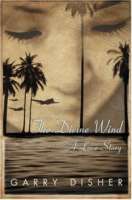
In 1946, in the northern Australian fishing town of Broome, Hart Penrose remembers. He remembers his parents his silent English mother and bluff Australian father. He remembers the storm that tore open is leg, and his sister Alice, whose exuberance and strength brought him out of despair. He remembers the racism and hatred that roiled Broome in the days before WW2, the unwarranted suspicions of the native Japanese that pulled the town apart. Most of all, he remembers Misty Sennosuke, the warm and beautiful girl next door, the girl he loved, the one he betrayed.
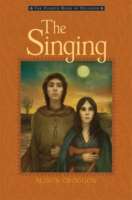
The climactic volume of the epic quartet follows the Bards of Edil-Amarandh on a vital quest to merge their powers against a nameless evil. In an increasingly battle-ravaged land, Maerad, Cadvan, and Hem desperately search for one another as they make their separate journeys. The Black Army is advancing north, and even as Maerad faces a mighty confrontation with the Landrost to save Innail, all of the Seven Kingdoms are threatened with bitter and devastating defeat. Yet in Maerad and Hem lives the secret to the mysterious Singing, and legend holds that if they release the music of Elidhu together, they have the power to defeat the Nameless One. Can brother and sister find each other in time to fight this all-powerful enemy, and are they strong enough — even reunited — to defeat him before all is lost?
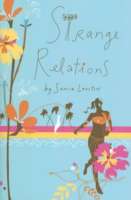
A summer in paradise. That’s all Marne wants. That’s all she can think of when she asks her parents permission to spend the summer in Hawaii with Aunt Carole and her family.
But Marne quickly realizes her visit isn’t going to be just about learning to surf and morning runs along the beach, despite the cute surfer boy she keeps bumping into. For one thing, Aunt Carole isn’t even Aunt Carole anymore—she’s Aunt Chaya, married to a Chasidic rabbi and deeply rooted in her religious community. Nothing could be more foreign to Marne, and fitting into this new culture—and house full of kids—is a challenge. But as she settles into her newfound family’s daily routine, she begins to think about spirituality, identity, and finding a place in the world in a way she never has before.
This rich novel is a window into a different life and gets to the very heart of faith, identity, and family ties.
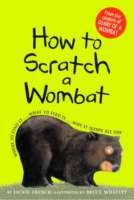
For more than thirty years, author Jackie French has lived in the Australian bush, coexisting with wild wombats. In this cross between memoir and natural history, Jackie shares her often hilarious adventures with her wombats neighbors and describes their physiology, history, and habits. Bruce Whatley adds pencil drawings in both comic and realistic styles.
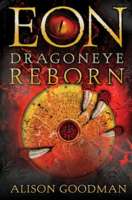
Action—a stunning magic system—swordplay galore! Eon has been studying the ancient art of Dragon Magic for four years, hoping he’ll be able to apprentice to one of the twelve energy dragons of good fortune. But he also has a dark secret. He is actually Eona, a sixteen-year-old girl who has been living a dangerous lie for the chance to become a Dragoneye, the human link to an energy dragon’s power. It is forbidden for females to practice the Dragon Magic and, if discovered, Eon faces a terrible death. After a dazzling sword ceremony, Eon’s affinity with the twelve dragons catapults him into the treacherous world of the Imperial court where he makes a powerful enemy, Lord Ido. As tension builds and Eon’s desperate lie comes to light, readers won’t be able to stop turning the pages …
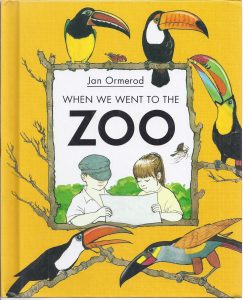 When Jan Ormerod takes a family to the zoo, they sing “hi-de-hi-de-ho, the elephant is so slow.” They see a pelican yawn. They laugh at an orangutan in a paper bag. But in the end, what they like best isn’t a zoo animal at all. It’s the simple, special sight of sparrows building a nest. The glowing illustrations make a trip to the zoo something to be remembered. Full-color illustrations.
When Jan Ormerod takes a family to the zoo, they sing “hi-de-hi-de-ho, the elephant is so slow.” They see a pelican yawn. They laugh at an orangutan in a paper bag. But in the end, what they like best isn’t a zoo animal at all. It’s the simple, special sight of sparrows building a nest. The glowing illustrations make a trip to the zoo something to be remembered. Full-color illustrations.
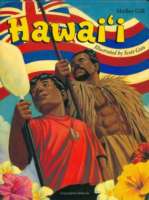
Take a tour of the Aloha State with Patrick and his father. They kayak around the Big Island, drive to Haleakala Crater, visit the paniolos on Parker Ranch, and so much more. Learn historical, natural science, and cultural information as well as some Hawaiian words and fun facts.

Riley Rose, atheist and bad girl, has been tricked into attending Spirit Ranch, a Christian camp. There she meets Dylan Kier, alumni camper and recent paraplegic, who arrives with a chip on his shoulder and a determination to perfect all of his bad habits. United in their personal suffering and in their irritation at their fellow campers, they turn the camp inside out as they question the meaning of belief systems, test their faith in each other, and ultimately settle a debate of the heart.